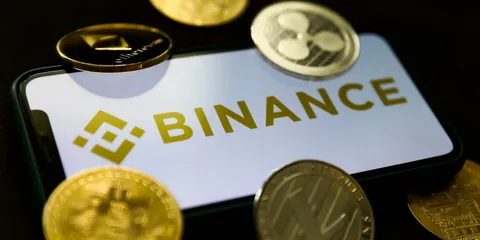Introduction
In the rapidly evolving world of cryptocurrency, controversies often arise, stirring emotions and spreading misinformation. Recently, Binance, one of the world’s largest cryptocurrency exchanges, found itself at the center of a heated debate.
Accusations surfaced alleging that the platform had frozen the funds of Palestinian users, causing widespread concern within the crypto community. Binance CEO, Richard Teng, swiftly addressed these claims, aiming to clear the air and provide transparency regarding the situation.
In this post, we delve into the details of the controversy, examine Teng’s response, and explore the broader implications for the cryptocurrency market and its users.

The Origins of the Controversy
The controversy began when several social media posts and reports started circulating, claiming that Binance CEO had frozen the accounts and assets of users based in Palestine. These reports alleged that the fund freezes were politically motivated, sparking outrage among users and raising questions about the platform’s integrity.
Critics quickly took to various platforms to voice their concerns, accusing Binance of discriminatory practices and questioning its commitment to providing an inclusive financial ecosystem.
Binance CEO Richard Teng wasted no time in addressing these allegations. In an official statement, Teng categorically denied the claims, emphasizing that Binance has not engaged in any politically motivated fund freezes.
He reiterated that the platform adheres to strict compliance and regulatory standards, which are applied uniformly to all users, regardless of their nationality or location. According to Teng, the safety and security of users’ funds remain a top priority for Binance CEO.
Binance’s Compliance Framework
To understand the context of these allegations, it’s important to delve into Binance’s compliance framework. As a global cryptocurrency exchange, Binance operates in a complex regulatory environment, where it must navigate the legal requirements of multiple jurisdictions.
Binance CEO Richard Teng highlighted that the company employs a robust compliance program designed to prevent illegal activities such as money laundering, terrorism financing, and sanctions violations. This program includes stringent Know Your Customer (KYC) procedures, transaction monitoring, and cooperation with regulatory authorities.
Teng clarified that any account restrictions or fund freezes on the platform are strictly the result of non-compliance with these regulations. He emphasized that Binance does not target specific nationalities or ethnic groups but instead focuses on ensuring that all users comply with the legal requirements of their respective countries.
The allegations of fund freezes specifically targeting Palestinian users were therefore unfounded, according to Binance CEO, and were likely the result of misunderstandings or miscommunication.
The Broader Impact of Misinformation
The controversy surrounding the alleged fund freezes for Palestinian users highlights a significant challenge in the digital age: the rapid spread of misinformation. In the world of cryptocurrency, where transactions are often irreversible, the potential for harm caused by false information is particularly high. Binance CEO Richard Teng acknowledged the damaging effects of misinformation, noting that it can erode trust in financial institutions and create unnecessary panic among users.
To combat this, Binance CEO stressed the importance of transparency and open communication. Binance has taken steps to improve its customer support services and provide clear, accurate information to users.
Additionally, the platform has increased its efforts to engage with the community through social media, public statements, and educational resources. Teng also urged users to verify the credibility of sources before accepting information as fact, especially in an industry as volatile and fast-paced as cryptocurrency.
The Future of Binance and Its Users
Looking ahead, Binance remains committed to serving a diverse global user base and ensuring that its platform is accessible to all. Binance CEO Richard Teng stated that the company will continue to enhance its compliance measures while also working to protect the rights and assets of its users.
He also mentioned that Binance is exploring new ways to support underserved communities, including those in conflict-affected regions, by providing access to financial services that might otherwise be out of reach.
Teng concluded his response by reiterating Binance’s dedication to its mission of increasing the freedom of money. He emphasized that the platform’s success depends on the trust and confidence of its users, and that Binance will continue to work tirelessly to uphold these values.
As the cryptocurrency landscape continues to evolve, Binance aims to stay at the forefront of innovation while maintaining its commitment to compliance and user protection.
Conclusion
The allegations of fund freezes for Palestinian users have sparked an important conversation about the role of cryptocurrency exchanges in the global financial system. Binance CEO Richard Teng’s response has been crucial in addressing these concerns and reaffirming the platform’s commitment to its users.
While misinformation can pose significant challenges, transparency and communication are key to maintaining trust in the industry. As Binance continues to grow and adapt to the changing regulatory landscape, it remains focused on providing a secure and inclusive platform for all users.
What are your thoughts on this controversy? Do you believe Binance CEO Richard Teng has adequately addressed the concerns? Feel free to share your opinions in the comments below.






